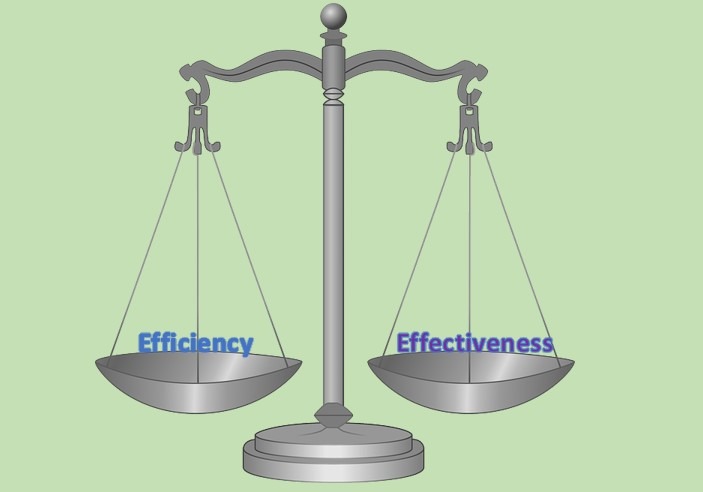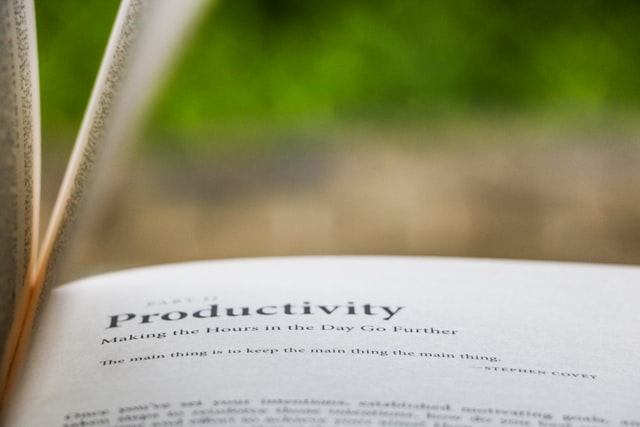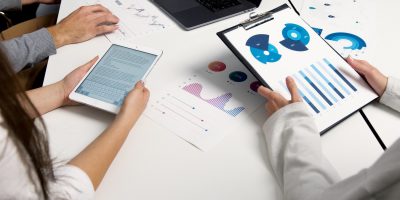For some individuals, efficiency may as well be the same as effectiveness – hence, the reason the words are commonly used interchangeably in business settings and normal activities. However, the two words have different meanings. Read on to learn more about effective vs. efficient and how understanding the two can improve your productivity.
Putting the Two Words into Context
In simpler terms, efficiency is about carrying out a task with the smallest resources. Of course, resources may include cost, time, efforts, or tangible materials like paper and toner. On the other hand, effectiveness refers to producing the intended/expected results.

To understand effective vs. efficient clearly, consider the two scenarios below:
Scenario A: A project manager executed a project at the cost of $480,000 and delivered it within 30 days, but there were minor issues with the project.
Scenario B: Another project manager carried out the same project at the cost of $520,000 and delivered it after 35 days without any issue.
The first project manager was more efficient because he spent a smaller amount, and he also used fewer days. Unfortunately, he wasn’t effective because there were issues with the project. On the other hand, the second project manager was more effective. His work had no issues, but he was less efficient because he spent more money and took more days.

Based on the scenarios above, we can draw out the main features of both terms:
Effectiveness
- Based on the expected results. You can’t know if a process is effective if you don’t know what the goal is.
- Requires views from outside your perception. CEOs will get this view from customers and prospects, and individuals from friends, family or employer.
- Difficult to measure – it’s either effective or it’s not.
- Based on subjective visioning.
- About doing it correctly.
Efficiency
- About doing it correctly in the best way possible.
- Focused more on processes and policies.
- Seeks continuous improvement.
- Measured easily with the use of several analytic metrics.
- Does not require external views and input and ends within organization.
- Requires objective analyses.
How Efficiency and Effectiveness Affect Productivity
Efficiency and effectiveness are two sides of the productivity coin. Being productive is about getting perfect results (effectiveness) with the least possible resources (efficiency). Therefore, productivity is the average of the outputs (effectiveness) over the inputs (efficiency).

In an organization, if employers focused on efficiency alone, then they may end up jeopardizing the competitiveness of their firm, as this means the contribution of activities to value creation gets ignored. In similar straits, if emphasis were placed only on effectiveness in a firm, then the maximization of resources gets pushed aside. Combining effectiveness and efficiency for productive purposes overcomes the shortcomings of using either of them alone.
Improving Productivity by Being Efficient and Effective
More often than not, productivity gets measured by output (effectiveness). That is, more emphasis is placed on the results while the process of achieving the results (efficiency) is overlooked. True productivity is about finding a balance between efficiency and effectiveness.

However, it is often easier to improve efficiency first, then strive to be effective later. That is because, for efficiency, all you need to do is rearrange tasks, goals and activities to make room for more productive effort. With a little thought and discipline, it is easy to achieve set goals or tasks.
Effectiveness, on the other hand, takes more effort because it requires the development of new capabilities. These capabilities may differ from the use of new tools to capacity building, which both require a period of learning and adoption. Finding a balance between the two concepts to improve productivity requires proper planning with implementation supported by the right tools.
Conclusion
To be effective, your output must be of high quality. On the other hand, to be efficient, you must make the best use of resources. Productive individuals are those who have mastered the art of being effective vs. efficient to utilize them in their activities.


